|
|
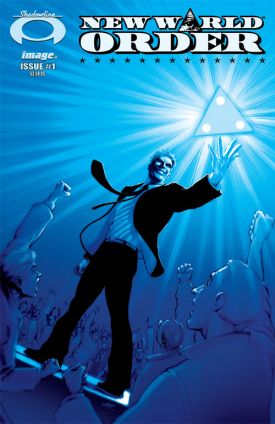 |
The model of self publishing and owner-owned comic book material should be revisited in light of the fact that creators are not ideal sales persons and that they should concentrate on doing what they do best, which is creating comic books and let others add the value and build the networks that are required to get books widely distributed.
Be Your Own Boss Baby
Although there had been precedents before, when Image Comics’ founders, Todd McFarlane, Jim Valentino, Jim Lee, Erik Larsen, Rob Liefeld, and Mark Silvestri founded their self publishing imprint, they created a new model that at the time was seen as a viable alternative for creators who wanted to publish their own books and retain ownership over their creations.
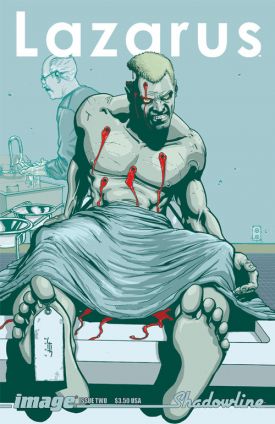 |
I will not argue the merits of creator-owned contents over that which is not. It’s a matter of taste that usually leaves out one aspect of the equation which is the most important of all, the customer. That Spider-man is owned by Marvel Comics has nothing to do with how good the stories are. Proponents of creator-owned comic books argue that characters, when in the hands of their initial owners, are allowed to change and evolve and are free from purely business concerns. I refute this attitude by saying that there is nothing wrong with good business principles.
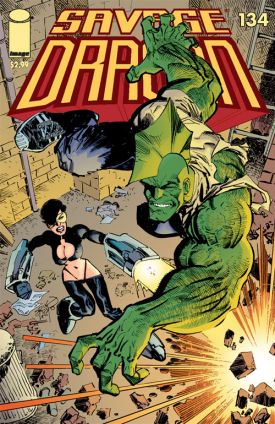 |
Since Spawn has been published, has the character in the comic book reached any groundbreaking point or done anything that a third party licensor would object to, if there were such a thing as a third party licensor for Todd McFarlane’s Spawn? In fact, concerning creator-owned properties acquired by McFarlane, such as Miracle Man, many would argue that his attitude toward creator Neil Gaiman has been similar to any other comic book publisher, if not worse.
In the years that I have watched this industry, few individuals have shown what I consider a business brain to making comic books. One of the few, Jim Shooter, notwithstanding what many have to say, had a good understanding of sound business practice. He first introduced these practices when he headed Marvel Comics as its editor in chief. At the time, Iron Man in the comic books had little noses drawn on them, to make them fit with the toys released elsewhere. This example is always the extreme example used to show that business influence and focus should have no say in the comic book industry. At the core, this is what drove guys like the Image Comics founders to create their company and this is what continues to influence generations of creators to want to control every aspect of their creations, in order to save them from having to conform to a defective toy mould created somewhere in China.
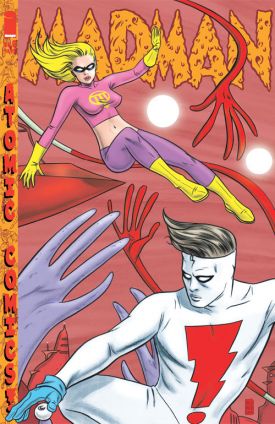 |
No Business School Recruits
When I go to a comic book convention and look at the enthusiasts in attendance, I see lots of young hopefuls wishing to become the next great comic book penciler or the next great writer. A few times, some will discuss the jobs of editors and colorists. But very few ever claim to want to become comic book industry marketing professionals, business executives or any type of support function that requires the skill of so many talented individual to make sure a given comic book reaches a customer’s hand on time. All of the focus is on the creative ends of things.
The recruitment of comic book business experts is done mostly through osmosis from the creative end of things to the business side. In other words, the nuts are controlling the ship. The right talent needed for sound business management is also recruited through the comic book press, through relatives, girl friends and lastly through traditional job postings. Very few individuals complete management degrees hoping to join the comic book industry. Very few promoters of comic book projects start exclusively as business folks. Hence the talent pool of people needed to steer the industry in the right direction, because for them comic book is more than something they help their boyfriends with, is lacking. Without strong business talents entering the comic book industry, it is no doubt that excellence and legitimate business influence is suspect.
Back To Good Management
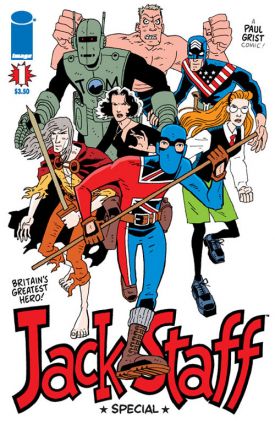 |
Creative folks in general are not the best decision-makers. They often reject proposals or refuse to make changes to their work, by invoking creative licenses. If they were sensitized to good business principles, their books would reach the stores on time and some of the drastic changes in the storytelling would not occur, because they would understand how that could alienate potential readers.
The most important part of the comic book industry is the customer which reads and buys the comic books that creators create. All creators should pause a bit and remember who it is they serve when they make a comic book. Artists and writers do not run supreme in this industry.
There is an avenue for art comics with limited runs that challenge readers and explore themes. But the bulk of the comic book industry is not about exploring creative limits and deconstructing existential philosophies. The bulk of the comic book industry is concerned about whether Buffy will defeat the latest threat to her hometown and whether Green Lantern can finally overcome his weakness over the colour yellow. There is nothing existential about these that warrant the prima donna attitude of the majority of comic book creators. The vast majority of comic books exist to entertain readers, not explore the inner depth and thoughts of their creators.
And in the case of those comic books with “higher designs” they too require a solid publisher to make sure they reach as many customers as possible. Creating a “groundbreaking” comic book story does not shield creators from the first requirement in their contracts which is serving readers. I can already hear all the creators reading this cringe at the fact of serving the readers which they often deem as uncultivated and boorish. They believe that because they are creators, they know best.
A creator that knows best is a creator that does not shy away from the humility needed to accept that they are but a piece of an equation and that this equation is controlled and should always be in the best interests of the consumers who foot the bills for this entire industry. It is time for creators to acknowledge that they are not super stars but the people hired by the consumers to entertain them.
Most comic book creators think of themselves as haute couture designers who create contents that is to be purchased by a rich elite that will marvel at any crazy design. In reality, the bulk of comic book creators are hired to dream up the causal and office clothes that most people wear daily and within a reasonable budget.
Part of what makes a creator effective is a freedom of creation. However, as the bulk of the comic book industry is not geared toward the fine arts exploration, there is a need for someone in the middle that can bridge and focus the creativity of the creator into something the customer is willing to buy. That person is the publisher and it is time that the publisher takes his place back and stop being afraid of being accused of reaping off creators.
What a Publisher Should Be
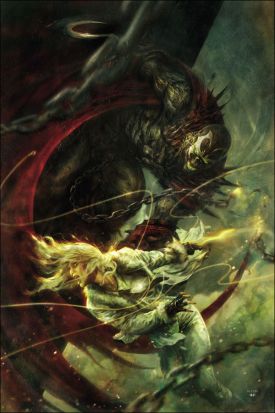 |
Having said this, it is clear that one of the most popular publishing models, the one that originates from Image Comics is not workable. The publisher here, Image Comics is not doing the job that is required of a publisher. It is not the independent influencer that steer creators into performing in the interests of the consumer. Instead, Image Comics, and all its clones, exist to entertain the creators that hook up with them. How can this be sustainable?
A good publisher should never moonlight as a creator. A good publisher should recruit personnel that want to work in the comic book industry in support roles that do not involve creative endeavours. A good publisher should be the one making business decisions on most matters that do not involve the contents within a comic book. A good publisher should be focused on sales and sales and sales. A good publisher should care at least as much about the consumer it serves as the creators it publishes.
More on that next week.
© Copyright 2002-2026 by Toon Doctor Inc. - All rights Reserved. All other texts, images, characters and trademarks are copyright their respective owners. Use of material in this document (including reproduction, modification, distribution, electronic transmission or republication) without prior written permission is strictly prohibited.

